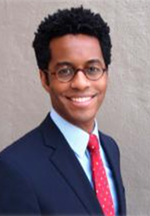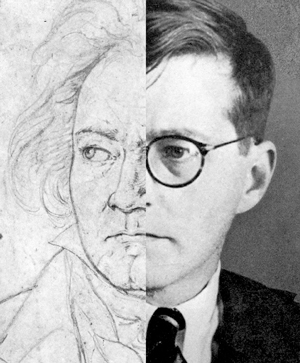The opportunity to look beyond composers’ music and into the world that shaped their lives and creative output is often available only to students enrolled in music history classes. Beginning tonight and continuing through Saturday, The Cleveland Orchestra presents Fate and Freedom: Music of Beethoven and Shostakovich. Music director Franz Welser-Möst conceived the Festival to look more closely at landmark symphonies by Beethoven and Shostakovich and provide context around their creation, while examining the ever-relevant themes of personal and societal freedom they express.
“Franz Welser-Möst is interested in bringing together unusual or disparate elements to see how they change our palette,” the orchestra’s director of artistic planning Mark Williams told us by telephone. “For example, a couple of seasons ago the orchestra played a number of works by Bruckner paired with the works of John Adams. The idea being that maybe Bruckner was the father of minimalism. Whether or not you agree with it, it is a statement.”
Fate and Freedom is a coming together of organizations and experts in their fields of study. On the musical front, Franz Welser-Möst will lead three Cleveland Orchestra concerts on three consecutive evenings, pairing Beethoven’s Symphonies Nos. 3, 4, and 5 with Shostakovich’s Symphonies Nos. 6, 8, and 10.
Presented in partnership with the Cleveland Museum of Art and the Cleveland Institute of Art and Cleveland Cinematheque, the Festival also includes screenings of Stanley Kubrick’s classic film A Clockwork Orange and The New Babylon, a revolutionary 1929 silent film featuring Shostakovich’s first film score.
Additionally, there will be pre-concert discussions with maestro Welser-Möst, Frank J. Oteri senior editor of NewMusicBox, Rebecca Mitchell, visiting assistant professor of Russian/Soviet history at Oberlin College, Dr. James Krukones, associate professor of history at John Carroll University, and John Ewing, director and curator of film at the Cleveland Museum of Art (check our concert listings for event dates and times.)

Williams says they decided to include the screening of the Kubrick film as a way of driving the point home and continuing the thread. “I think Clockwork Orange is an amazing film and it absolutely touches on so many of the themes that we are talking about in this festival: Fate and Freedom.” The film also prominently features music from Beethoven’s Symphony No. 9. “We talk about freedom a lot but it doesn’t always bring great things. If we want humans to be free and to live as they would like, letting them make their own choices, well, maybe the choices they make are not the choices you want them to make. So how much do you care about freedom or would you rather just have a perfectly behaved society? This is an oversimplification of the question but these are issues that all come up during Clockwork Orange.”
Williams says The New Babylon, Shostakovich’s first film score, was also chosen as a way of extending the trajectory of the conversation. “Shostakovich was working as a film composer in the open while he was writing symphonies not in the open. It is interesting that this was his public persona while privately a very different dialogue was happening. We wanted to find a way to present some of that music, so I thought, why not present it with its original film.”
While I had Mark Williams on the phone I asked him if he would talk a little bit about what a director of artistic planning does every day.
“What I do every day? Oh gosh, [laughing] If I were to give you an elevator speech about what I do every day, I’d start with the administrator side. We are responsible for organizing how the programs will work — working with colleagues on how the performance and rehearsals will operate and figuring out the most efficient way of doing what we need to do. We play a lot of music over the course of a season and there are ways to arrange it so that we make better use of everyone’s time.
“On the other side, it’s being an artistic voice at the table but mainly as an advisor because at the end of the day the musicians who are performing the music have to believe in what they are presenting. I think every creative person needs a wall to bounce ideas off of. So I spend a lot of time asking people what do they think about this? They may say, I‘m not sure about that, but what do you think about this? It is a dialogue, and to my view, that is how great art like this happens.”
Published on ClevelandClassical.com October 22, 2013
Click here for a printable version of this article.



